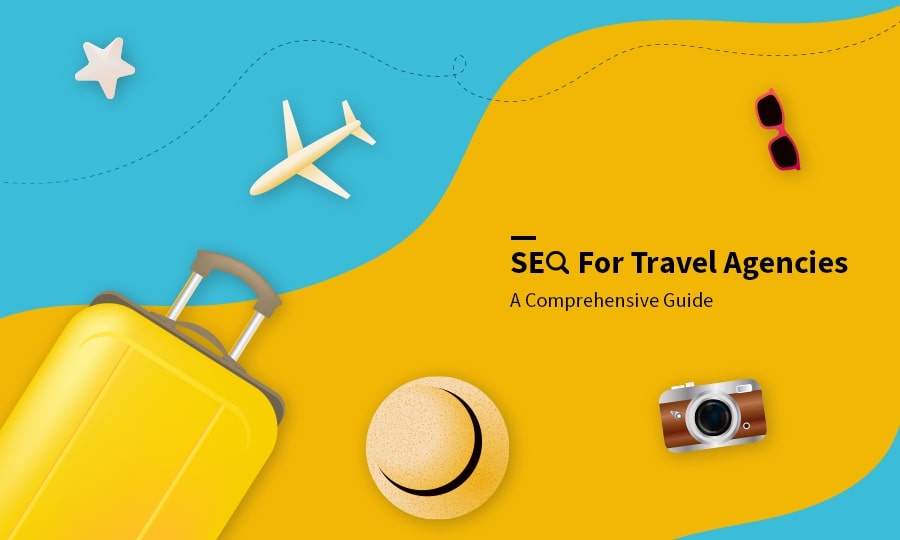
Power Up the Travel Business with the Aid of Digital Marketing.
Travel remains one of those things with the world going round today with stiff competition within. One thing about applying digital marketing for travel enterprises seeking an edge over peers is more booking of holidays taking place and destination research coming from an Internet search. Of course, nowadays, for those who rely so much on these companies or enterprises to continue existing.
This blog will focus on how travel businesses can use digital marketing to increase brand value, enhance bookings, and maintain a long-term relationship with customers. Some of the most important strategies that include search engine optimization, social media marketing, email marketing, and content marketing will bring in visibility, credibility, and profitability to travel businesses.
1. Knowledge of the Digital Marketing Landscape
It is important to understand how broad the scope of digital marketing is before getting into the strategies. Digital marketing for the travel industry is a broad term that means any form of marketing that occurs through electronic devices or the internet. These include websites, social media, paid advertisements, email marketing campaigns, blogs, and much more.
The travel business uses the digital world to reach an audience around the globe. From the promotion of tourism towards certain destinations to offering tour packages, and from the advertisement of flight bookings to accommodation, this world is full of infinite possibilities and ways to connect with possible customers.
2. SEO and Travel Marketing
One of the most powerful digital marketing tools for this industry is search engine optimization. SEO means optimizing the website and online content to come up higher in search engines, such as Google. That's important because most people start with a query when planning a trip, and recent studies show over 70% of the travel bookings are influenced online.
How SEO benefits travel businesses:
It boosts your company's visibility, appearing to those potential customers when they seek travel-related services or destinations, increasing the ranking on search engines.
Targeted Traffic: It attracts customers who are actually searching for services your business is offering. For example, a search for "best hotels in Paris" or "affordable summer vacation packages" can take the traveler directly to your website.
In organic SEO, the effects linger over an even longer term where you get consistent organic traffic.
Key SEO Strategies for Travel Businesses
Keyword research: There are tools like Google Keyword Planner that can help research specific search terms that travelers apply. Integrating these specific terms into your website and content in your blog helps rank higher for relevant search terms.
Local SEO: Optimize your website so that it is search-enabled for location-based searches. This really matters for hotels, tours, or local attractions.
Mobile Optimization: Most of the travelers start searching and booking services on a mobile phone. Make sure that your website is mobile-friendly enough to have a good experience.
High-quality content: This includes information- or content-rich blogs, guides, and travel tips, for example, and increases their value and enhances the SEO of the website.
3. Social Media Marketing in the Tourism Industry
Social media has proved to be a powerful tool for communicating with the target market, building a brand, and increasing loyalty towards the brand. The arrival of Instagram, Facebook, Twitter, TikTok, and other social media platforms dramatically changed the scenario of communicating travel services by travel-related businesses.
Why social media is important to travel agencies:
Visual appeal: A travel business is a very visual industry. Businesses can post excellent photos and videos of places, activities, and lodging on Instagram or Pinterest. All these elements are highly motivating to the prospective travelers.
Engagement and Community Building: Social media precisely provides an avenue for travel businesses to interact with their customers. This provides a number of answers to your questions, uploads customer reviews, and content shared by other users in creating a community for your brand that helps in developing higher trust and loyalty from your customer.
Influencer Marketing: Engage the attention of travel influencers in your marketing strategy to expand your viewers. Generally, influencers tend to be followed by travel-loving and reliant followers that go with recommendations for awareness and booking purposes.
Share your content often: Keep people interested with new packages, seasonal offers, and other amazing travel experiences.
Use good, relevant travel hashtags: For example, look up common hashtags for your niche. Common ones would be #travelbloggers or #vacationgoals.
Engage with Your Audience: Try to reply to comments and questions. Position your business as the best possible destination where users share their travels with your company.
4. Email Marketing: Retaining Clients
Email marketing is a prime way of establishing an established client relationship and having your business's primary source of income through repeat business.
How can email marketing help travel companies profit?
Personalization: Using the details of customers, travel companies can send personal emails to customers according to their preferences, previous booking history, and interests. This makes the customers feel important, and there is a likelihood of return visits.
Promotions and Offers: With the help of targeted email campaigns with special offers, discounts, or exclusive deals, chances are that conversions and bookings might arise.
Building Trust: This is a method by which a relation can be built over time through emails. For instance, consistently giving useful content or offers builds trust and loyalty with customers.
Effective Email Marketing Strategies:
Segment Your Audience: Segment your list according to past bookings, interests, location, etc. Have messages for each group.
Captivating Subject Lines: To boost open rates, write captivating subject lines. Pre-sell value from the topic for the recipient to be drawn to.
Clearly, in your emails, there ought to be a call to action. This may take the form of "Book Now" or "Learn More" that nudges the recipient to take the next step.
5. Content Marketing and Storytelling
Content marketing is one of the basics of digital marketing for travel. A tourist is not interested in services but experiences and stories. So, travel companies would emotionally connect with their audiences, thereby telling great stories or tales about destinations, the local culture, personal experience, etc.
The benefits of content marketing
Establishing Authority: Useful, well-researched content establishes your business as a source for travel information. Helpful tips on traveling, trip planning, or packing make your company a source that users can rely on.
Improving Organic Traffic: Since valuable blog posts and guides contain information users may be actively searching for, they improve SEO.
Emotional Bond: Individuals travel for different reasons. Whether it's a blog, social media update, or video content, storytelling can help your company connect with your audience on an emotional level.
Content Ideas for Travel
Travel Tips & Guides: Write an exhaustive guide on a popular destination or activity (such as "How to Plan the Perfect Family Vacation" or "10 Things to Do in Bali").
Customer Stories and Testimonials: Present the stories from actual customers. User-generated content enhances authenticity and trust.
Visual Content: Develop eye-catching video content highlighting a destination, behind-the-scenes tour, or customer experiences.
6. The Importance of Trust and Transparency
Travel is an industry based on trust. Travelers make significant financial commitments when booking, and they should have faith that they are doing so with a reliable company. Digital marketing builds such confidence by being transparent.
How to Build Trust with Your Audience:
Clear and Honest Communication: Be transparent about pricing, cancellation policies, and any other important information.
Customer Reviews: Provide opportunities for customers to comment and give feedback about the travel business. Good reviews work wonders in gaining customer confidence.
Accreditations and Certifications: List the industry certifications and memberships that prove your credentials and reputation.
Conclusion
Online marketing can revolutionize an entire travel business. By focusing on these strategies, including SEO, social media marketing, email campaigns, and content marketing, a travel business can become visible, interact with the target market, and boost the number of bookings. It allows them to establish long-term relationships with their audience.
In this day and age of technology, success in the travel industry comes down to how you master digital marketing. For small travel agencies to larger tour operators, the integration of these strategies will keep them in the game and communicating with customers, thus growing business.
Read Also
DMC (Destination Management Company) Web Development: A Full Review

 Start your Travel Business with Our 7 Day Free Trial Website!
Start your Travel Business with Our 7 Day Free Trial Website!





